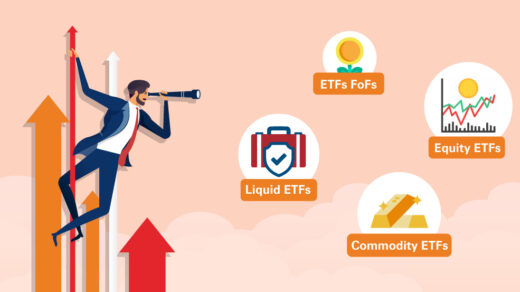In the dynamic landscape of investment, Exchange Traded Funds (ETFs) have emerged as versatile and accessible financial instruments, offering investors a unique way to navigate the complexities of the market.
These listed investment products have gained popularity for their ability to track and mirror the performance of various assets, providing a diverse range of investment opportunities.
Understanding the Basics:
At their core, ETFs function as investment funds traded on stock exchanges, mirroring the performance of a basket of assets such as shares, bonds, or commodities. Unlike traditional mutual funds, ETFs are traded throughout the trading day, allowing investors to buy or sell shares at market prices, providing flexibility and liquidity.
Diverse Types of ETFs:
- Index ETFs: These funds replicate the performance of a specific index by holding either the entire contents of the index or a representative sample of its securities. Indices can be based on stocks, bonds, commodities, or currencies.
- Equity ETFs: Traded like individual shares on an exchange, equity ETFs offer investors the opportunity to invest in a basket of company stocks. This flexibility allows investors to tailor their portfolios based on specific strategies, whether geographical, country-focused, or industry-specific.
- Debt ETFs: These funds are centered around debt securities and can invest in various types of debt instruments, including government bonds, corporate bonds, inflation-linked securities, mortgage-backed securities, or money market instruments.
- Commodity ETFs: Focused on commodities, these funds can either hold physical commodities in storage or invest in futures contracts. Investors can gain exposure to a single commodity or a diversified basket, depending on the fund’s objective.
Key Advantages of ETFs:
- Diversification: ETFs provide instant diversification by tracking a basket of assets, reducing the impact of poor performance from a single investment.
- Liquidity: Being traded on stock exchanges, ETFs offer intraday liquidity, allowing investors to buy or sell at prevailing market prices.
- Transparency: The holdings of an ETF are disclosed daily, ensuring transparency and allowing investors to know precisely what assets they own.
- Cost Efficiency: ETFs typically have lower expense ratios compared to traditional mutual funds, making them a cost-effective investment choice.
Investor Accessibility:
One of the most appealing aspects of ETFs is their accessibility. Whether you are an individual investor, institutional investor, or somewhere in between, ETFs provide an avenue to diversify your portfolio without the need for significant capital or intricate market knowledge.
In conclusion, Exchange Traded Funds stand as a powerful tool in the hands of modern investors, offering flexibility, transparency, and an array of investment options. As financial markets evolve, ETFs continue to play a crucial role in shaping the future of investment strategies.




